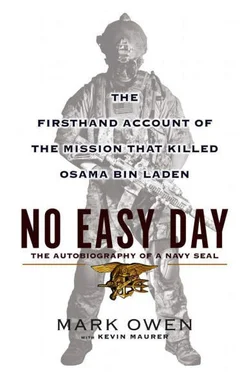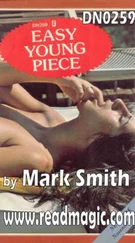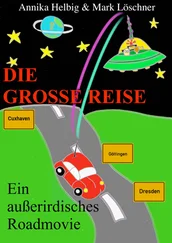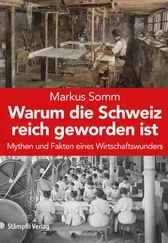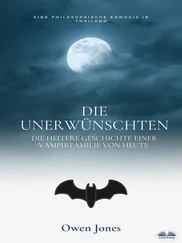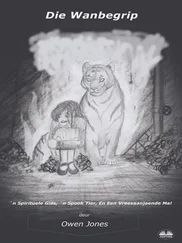I’d never been in a crash, but seven out of the dozen SEALs on my chalk had been in some form of crash in the past. Only two of the men on Chalk Two’s bird could say the same thing. We joked that the law of averages should keep our bird in the air.
______
The window of opportunity to launch was short. The illumination cycle would start increasing the following week. We wouldn’t have these types of optimal conditions again for a month. Plus, with everything in place, the longer we held off, the greater the concern that the mission would leak. In the three weeks since we started planning, the number of people who knew about the operation had expanded exponentially.
JSOC was ramping up its activity. McRaven was in Afghanistan, which isn’t news in itself, but the fact that he was heading to J-bad caused a bit of a stir. A Ranger colonel ran daily operations out of our command center in Bagram. Eventually, he was read in on the mission, adding more and more people who knew what was spinning up.
Back in Washington, the main concern seemed to be confidence in the intelligence. Unlike Jen, her fellow analysts were only about sixty percent certain Bin Laden lived in the compound.
In Afghanistan, we were oblivious to the hand-wringing in Washington. We had daily briefings. Drones flew over the compound keeping watch. We also had to battle the “good idea fairy.” She shows up on all our missions to some degree or another, and she isn’t our friend. The fairy shows up when the head shed has too much time on their hands. Essentially, officers and planners start dreaming up unrealistic scenarios that we may have to deal with on a mission.
“They want us to take a bullhorn for crowd control now,” the team leader in charge of outer security said. “This ranks right up there with the police light.”
Earlier, the head shed had floated an idea for the outer security team to take one of Bin Laden’s cars and affix a police light to it to make the activity around the target look like a police operation.
“So I said, ‘Hey, sir, are we just going to push it out there?’ We aren’t going to have the keys,” the team leader said. “What if the steering wheel locks? Plus, which team has time to push a car out of the driveway and all the way down to the street corner? And let’s not forget that we will now have a flashing police light highlighting our position.”
“What color are police lights in Pakistan?” I said.
“No idea,” he said. “That was my next question. Then we got into a half-hour discussion about Ali.” Ali was the CIA interpreter on external security. He spoke Pashtun, which was used in the local area. “The good idea fairy wants him in local civilian clothes. He’s going to be standing between a SAW gunner and me. We’re in uniform, so what does it matter?”
Logic won out in both battles. We didn’t carry the police light and Ali was in uniform.
This kind of stuff always happens when planners get into the weeds. The CIA asked us to take a sixty-pound box that blocked cell phone signals. Weight was already an issue, so that good idea died quickly. If we had all the time back we wasted fighting the fairy, we might regain a few years of our lives.
______
On the second night, I sat at the fire pit sipping on some fresh coffee with Charlie and Walt. The debate of the day was over where in the body you should attempt to shoot Bin Laden.
“Try not to shoot this motherfucker in the face,” Walt said. “Everybody is going to want to see this picture.”
“But if it’s dark and I can only see his head, I’m not waiting for a suicide vest,” Charlie said.
“These will be some of the most viewed pictures of all time,” I said. “If given the option, all I’m saying is shoot for the chest.”
“Easier said than done,” Walt said.
“Remember to aim high,” I said to Walt. “Since you only come up to his nuts.”
We’d already decided that Elijah Wood had Walt’s role in the movie, since he was no taller than a hobbit.
Casting the Bin Laden movie was an ongoing joke. Who was going to play whom in Hollywood’s version of the mission? No one was getting Brad Pitt or George Clooney. Instead, we had a red-haired guy on the team so Carrot Top would portray him for sure. At least Walt had Frodo instead of a second-rate comic.
“You know if this goes, we’ll get Jay his star,” I said.
Everyone knew that for the officers, like Jay, if the raid was successful it would be a career maker. It would most likely mean Jay would make admiral some day. For the enlisted guys, it really didn’t mean anything; to us it was just another job.
“And we’ll get Obama reelected for sure,” Walt said. “I can see him now, talking about how he killed Bin Laden.”
We had seen it before when he took credit for the Captain Phillips rescue. Although we applauded the decision-making in this case, there was no doubt in anybody’s mind that he would take all the political credit for this too.
We all knew this was bigger than us and bigger than politics. Maybe the officers and politicians would benefit, but that didn’t make us want to do it any less. That was always how things went. Our reward was doing the job, and we wouldn’t have it any other way.
Near dawn, the fire pit broke up and we all went and tried to get a few hours of sleep. Since we operated at night, the majority of the population on the JSOC compound slept all day.
I popped two Ambien. No one was getting any rest without sleeping pills. No matter how much we tried to make this mission just like the others, it wasn’t. It had been two days, but it felt like months.
The third day was supposed to be “go day,” but cloud cover delayed our launch. No big deal for us. We always get delayed, so we expected it. Getting delayed was better than getting canceled. McRaven wanted to make sure drones could watch the compound in case Bin Laden left while we were in route, and the cloud cover made that impossible.
Our daily briefs were held in a long, narrow room with wooden handmade benches running down the middle like a church. At the front of the room were flat-screen TVs for PowerPoint presentations and to show us drone footage or satellite photos.
Today’s briefing was standing room only. I was seated next to Charlie near the back on one of the benches. I saw several of the SEALs from the other squadron wedged around the model, which still demanded your attention when you saw it. They were studying it intently before the briefing. It was amazing how it sucked you in and you’d find yourself fixated on it.
A portion of the briefing was about what to do if the mission went drastically wrong and the Pakistani authorities somehow apprehended us.
The president had already given us the green light to protect ourselves, even if we had to engage the Pakistan military. We were going deep into Pakistan, and we needed a reason other than the truth in case we were detained.
“OK, guys,” the officer said. “Here is what they came up with. We’re on a search and recovery mission for a downed ISR platform,” he said.
An ISR platform is what the military calls a drone. Essentially, we were going to have to tell the Pakistani interrogators that the United States Air Force lost a drone.
We all laughed.
“That is as good as they can come up with?” someone said from the back of the room. “Why don’t they give us a bullhorn and a police siren just in case?”
The story was preposterous. We were allies with Pakistan on paper, so if we did lose a drone, the State Department would negotiate directly with the Pakistani government to get it back. The story didn’t wash and would be very difficult to stick to during hours of questioning.
Читать дальше
